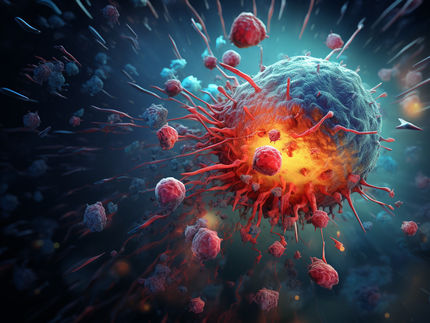Rigel team discovers new regulators of the immune system
Advertisement
In an attempt to find new regulators of the immune system, a team of researchers at Rigel Pharmaceuticals, Inc. have created a successful method for discovering targets that are involved in signaling pathways. As published this week in the Journal of biology, the team conducted a functional genome-wide screen and discovered novel modulators of T-cell receptor signaling that could aid in the development of drugs that target the immune response.
T-cells are an integral part of the immune response. Helper T-cells encourage antibody-producing B-cells to replicate and secrete antibodies, and play a role in the inflammatory response. Cytotoxic T-cells identify and kill cells that have been infected with viruses. As all these functions are initiated by T-cell receptors, each response must be determined by the particular set of downstream signaling components that are activated. Until now, identification of novel components in these pathways has been slow and time-consuming. As the article notes, the researchers believe that this study demonstrates, "a successful approach for discovering and validating, in a functionally relevant context, important immune regulators on a genome-wide scale." The research team, led by Dr. Charlene Liao, as part of a collaboration with Novartis, used retroviruses to carry into cells lymphoid genes that regulate T-cell receptor signaling when expressed. Normally, a cell surface marker called CD69 is up-regulated when T-cell receptors are activated. However, the researchers selected cells that, when given a new gene to express, failed to upregulate this protein. They then checked that this repression was caused by the introduced gene and was not a side effect of the procedure. After three rounds of selection, 33 individual genes were cloned. Some of these were already known to play a role in the immune response, some had previously had unrelated functions assigned to them, and others were completely novel.
The Rigel team carried out additional experiments on three of the genes that were identified in the screen to verify their functional relevance. These experiments confirmed that the genes EDG1, PAK2, and the previously unidentified TRAC-1 were normally expressed in the lymphoid system and that truncated versions of their proteins could repress T-cell receptor signaling in T-cells.
The authors write: "This approach provides a tool for functional cloning of regulators in numerous signal transduction pathways. (...) Importantly, the outlined strategy, which requires no prior sequence information of the players involved, does not bias the search to previously known signaling molecules, molecules flagged by DNA-array technologies or signaling molecules discovered in other contexts."
Other news from the department science
Most read news
More news from our other portals
See the theme worlds for related content
Topic world Antibodies
Antibodies are specialized molecules of our immune system that can specifically recognize and neutralize pathogens or foreign substances. Antibody research in biotech and pharma has recognized this natural defense potential and is working intensively to make it therapeutically useful. From monoclonal antibodies used against cancer or autoimmune diseases to antibody-drug conjugates that specifically transport drugs to disease cells - the possibilities are enormous

Topic world Antibodies
Antibodies are specialized molecules of our immune system that can specifically recognize and neutralize pathogens or foreign substances. Antibody research in biotech and pharma has recognized this natural defense potential and is working intensively to make it therapeutically useful. From monoclonal antibodies used against cancer or autoimmune diseases to antibody-drug conjugates that specifically transport drugs to disease cells - the possibilities are enormous



























































